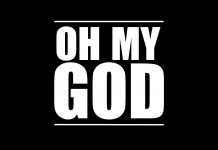The documentary film We Need to Talk About Islam could just as easily be called an opinion or editorial piece. It presents a thesis statement of sorts very early on, and audiences aren’t left wondering what aspect of Islam needs to be talked about according to the film’s narrator and presumably its’ creators. Various news footage, online videos showcasing Muslims admitting that they believe in the Quran, and footage displaying environments under Shariah rule are combined to show viewers why the supposed narrative of Islam and terrorism not being mutually exclusive is all wrong. The film works to do one thing, and that is to persuade the audience that Muslims are bad, the narrator even gives a list of reasons why he believes all Muslims are bad, but is careful to explain that by bad he does not mean terrorist. The film is curious in the way that it opposes the religion of Muslims. Much like the “All Muslims Are Bad. ” bit of the film works to distance bad from terrorist, the narrator spends quite a bit of time (with the help of news footage from here and there) making sure that the audience doesn’t mistake the religion of Islam with any one race; seemingly in an attempt to not appear racist before negatively critiquing the western news media over going out of their way to not attach Islam with the word terror in order to not appear racist. We Need to Talk About Islam also makes a point of attempting to separate the faults of Islam from the faults of other religions, ironically through listing issues with the religion that ring true of Christianity as well, including attitudes towards homosexuality. There are times in the film when good intentions and practical thinking points seem to be more at play than a desire to attach terrorism with Islam, but those moments can easily feel difficult to reconcile with the rest of the film. We Need to Talk About Islam states that non-extremist Muslims are irrelevant when compared to the Muslims who are extremist; a claim that raises eyebrows not because it may be offensive to Muslims, but because it is a logical fallacy in the form of a slippery slope and a way of thinking that is perhaps just as dangerous as the narrator and other notable atheist who are shown speaking throughout the film insist that any religious faith is. What is left to talk about after we decide that we believe in the points being made by the film’s narrator? You decide.
POPULAR PICKS
LATEST ADDITIONS
© Copyright 2017-2022 - Gratis Global Ltd. All rights reserved.

































